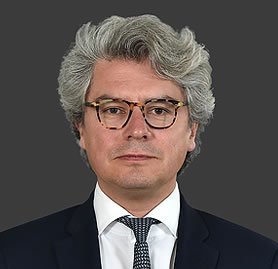Morocco: Horizon Scanning 2022
Africa Connected: Issue 7
What sectors do you expect to see increased investment and / or financial movement in over the next 18 months?
In Morocco, we can expect to see movement in social infrastructure and the energy sector, including in water and waste. The automotive sector will continue to attract investment through the Tangiers Free Trade Zone. The agribusiness sector should also sustain growth given the need to monitor the lack of water resources in the country.
Where do you see the key areas of growth or opportunity for businesses operating in your country?
There are opportunities in social infrastructure dedicated to health and education. Logistics platforms are also an area of growth with the supremacy of the Tangier port, in addition to the future port of Dakhla, offering two different sea entries to Africa’s markets.
What sectors have been most impacted by COVID-19 and what have businesses in that sector done to cope with these challenges or potentially benefit from opportunities arising?
Both the industrial and services sectors have suffered from COVID-19 in Morocco. The financial services sector has deployed an impressive toolkit of subsidies and loans to help companies but unfortunately the upcoming wave of distressed companies cannot be avoided. Given the decrease in valuation of many companies, certain foreign investors have taken this opportunity to acquire distressed entities. Others consider that their African growth strategies should be suspended or stopped and have sold off their investments. In a way, we can say that the cards have been redistributed.
What is the most relevant regional or pan-African economic trend that you are seeing in the next 18 months?
The willingness to build free trade zones / free trade areas to attract manufacturers. To erect a single African market for trade seems challenging (through the African Continental Free Trade Area) but it is now at the heart of African governments’ priorities.
In terms of the legal services market, what growth are you seeing on the horizon in the next 18 months?
All legal services around digitalisation / digital transformation are booming: use of data, e-money, etc. We are seeing also requests for assistance in public-private partnerships (PPP), be it structuring, financing or amending regulations.
What is the general business mood in-country in the next 18 months?
In Morocco the mood is still hopeful in a context where a new government (comprising of a record number of female ministers) has taken office in 2021, that is significantly different from the previous one. The mood is sustained by most economic actors, who are willing to boost the country and give it a leading place among African markets.
What is the single biggest legislative change on the horizon in the next 18 months?
The set of reforms relating to energy including mining, hydrogen and self-production of electricity. They are aligned with the new strategy plan for energy recently put in place for the Kingdom with a view to fill the gap in terms of energy production, setting the country’s sights on energy independence. Our office has participated in the review process of these reforms.
What impact, in terms of foreign investment (or doing business), will this legislative change have?
These legislative reforms should attract more foreign investors, be it private sponsors or DFIs. However the need for expertise and financing is very significant for such a short period. The country’s strategy will need ten years to be deployed. We should see numerous PPP projects with a wide range of financing. In addition to Asian investment, the recent Abraham Accords with Israel and the Arab world has created a new wave of FDI opportunities in Morocco.
What is the current investment appetite in the region? Do you see this changing in 2022?
The African Continental Free Trade Area (AfCFTA) treaty has been ratified and we will see more and more players active in the logistics sector investing in Morocco in anticipation of what is expected to be an economic revolution within five years. Morocco has one of the largest ports (in terms of container volume) in North Africa with Tangiers open to the Mediterranean sea and a new port project in Dakhla in the south open to the Atlantic. In part thanks to these two ports, Morocco represents an excellent place for logistics operators that are awaiting the free trade zone’s implementation. We see more and more clients looking to set up direct activities and output factories in Morocco or planning to invest because of the free trade zone opportunities. The “South-South” strategy in Africa is becoming a reality.
This article forms part of Africa Connected: Horizon scanning 2022:


